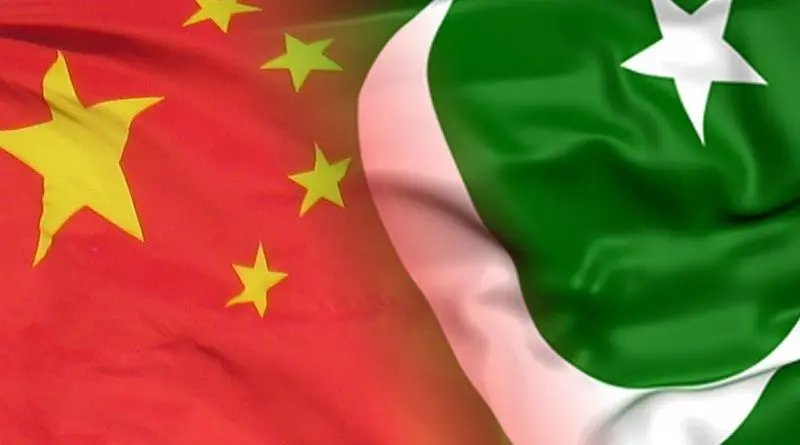Sino-Pak Nuclear-Deal: A Setback To India-China Ties?
By IPCS
By M Shamsur Rabb Khan
The report on the formalization of the China-Pakistan nuclear deal between China Nuclear Power Corporation and the Pakistan Atomic Energy Commission, similar to the landmark nuclear agreement with Indo-US civil nuclear deal signed in 2008, has come as a setback to New Delhi in normalizing bilateral relations with China. As per the deal, China plans to build two nuclear reactors at the Chashma site in Pakistan. The first negative fall-out of such a deal would be the crack in deepening or improving the Sino-India relationship that saw some positive sings in recent times, more precisely since the climate change summit at Copenhagen in December 2009, where Prime Minister Manmohan Singh and Premier Wen Jiabao surprised the world with their coordination. The last month visit of the President Pratibha Patil to China, which India declared as successful and forward-looking, was a step in that direction. But in the face of a nuclear deal with Pakistan, New Delhi has conveyed its strong reservations to Beijing.
Given the long hostility against India, if Beijing formalizes the deal with Pakistan, New Delhi is left with no doubt about China’s intention to prefer nuclear engagement with Pakistan at the costs of its relations with India. More than that, India will not take it as a friendly gesture from China, if it goes ahead with creating a nuclear parity between India and Pakistan. It will stamp a belief in the country that all efforts by India to have closer ties with China will not alter Beijing’s ‘all-weather partnership with Pakistan’. Albeit China asserts that the nuclear deal between China and Pakistan is in line with each side’s international obligations and it is for peaceful purposes, it is in violation of the guidelines of the 46-nation Nuclear Suppliers Group (NSG) that China joined in 2004. Even if the tangles of legality pave the way for such a deal, New Delhi’s concern is genuine due to the past record of clandestine military nuclear cooperation between China and Pakistan. At least, India would want an assurance that China is not expanding its clandestine collaboration with Pakistan under the guise of civilian cooperation.
It seems to be clear that China is taking a leaf out of Indo-US civil nuclear agreement in pushing forward a policy New Delhi would resent. China must understand there is no comparison between Indo-US civil nuclear agreement and Sino-Pakistan cooperation because of the fact that the former has to go through a long process of revising the NSG rules and the US domestic law. But China is trying to extend a similar benefit to Pakistan without any due legal process or international debate on the pros and cons on the issue. The two deals can also not be equated due to the huge difference in proliferation records of India and Pakistan. Given the widespread proliferation that resulted from the Pakistan-based AQ Khan network that handed out nuclear secrets to Iran, Libya and North Korea, as well as continued concerns about the existence of terrorist networks in Pakistan that seek access to nuclear weapons technology; the Chinese decision to have a nuclear cooperation with Pakistan is shortsighted.
If China continues to play its strategic card by exposing India to two fronts of hostility, then India has every reason to counter such a deal. By all accounts, China’s move to seal a nuclear deal with Pakistan may take back Sino-India relations to square one, and all efforts, for example, frequent high-level interactions in 2009 and President Hu Jintao’s talks with the Prime Minister Manmohan Singh at the Shanghai Cooperation Organisation (SCO) or at Yekaterinburg, Russia, during Brazil, Russia, India and China (BRIC) meet, or Wen Jiabao’s meeting with Manmohan Singh at the East Asia Summit in Thailand – all seem fruitless. Sino-Pak ties, on the other hand, are deepening through bilateral defence trade with China supplying its most advanced home-made combat aircraft, the third-generation J-10 fighter jets to Pakistan, besides decades of joint ventures including the JF-17 Thunder fighter aircraft, the K-8 Karakorum advance training aircraft, and the Babur cruise missile.
After a long silence, the US has come out with a statement that it will raise objections to the proposed nuclear deal between China and Pakistan. According to the Obama administration, Beijing is going to violate the Nuclear Non-Proliferation Treaty (NPT) that forbids export of nuclear reactors to countries that have not signed the pact if it goes ahead with the deal. The State Department has asked Beijing to cooperate with Pakistan in ways consistent with Chinese non-proliferation obligations. In the ongoing meeting of the NSG (21-25 June, 2010), China will reportedly make a statement on its decision to supply two more nuclear reactors to Pakistan. India is set to offer concerns, by exposing the underlying flaws in China’s argument in support of such a deal. But will the NSG agree to the Chinese arguments in maintaining a nuclear parity between India and Pakistan?

